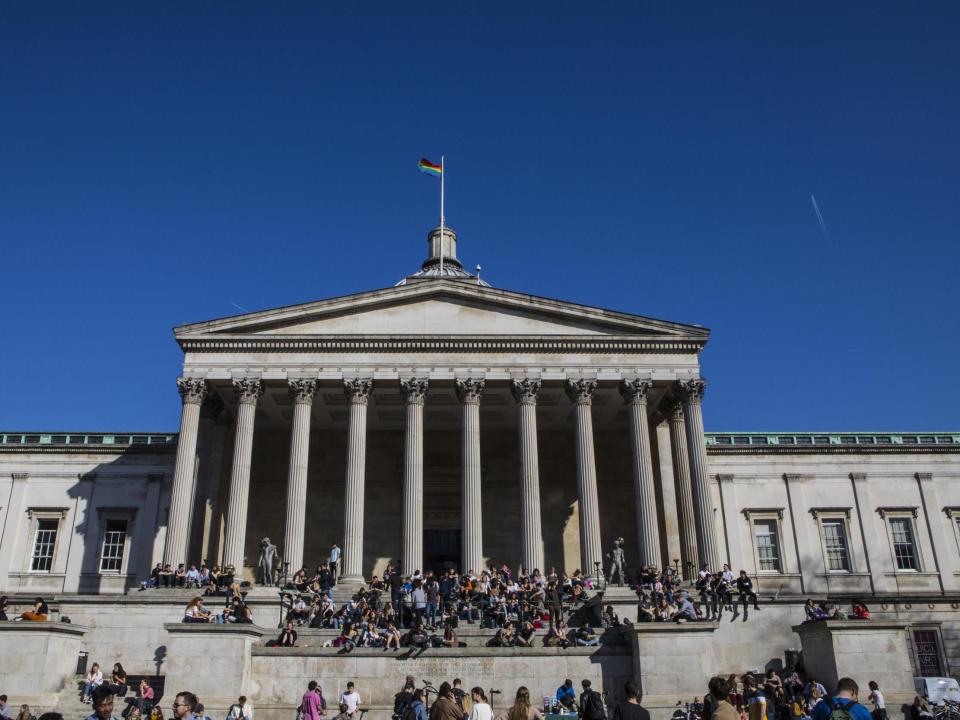University College London to look at renaming buildings honouring eugenicists to address ‘problematic’ history

A top university could rename buildings and awards honouring two prominent eugenicists following concerns about secret conferences on eugenics and intelligence hosted on campus.
University College London (UCL) has unveiled a series of measures to address its “problematic” history with eugenics after pressure from students and staff.
One of the proposals includes renaming spaces named after Victorian scientist Sir Francis Galton and his protege Karl Pearson as it creates an “unwelcoming environment” for minority groups.
Galton coined the term eugenics and defined it as the science of improving human populations by selective breeding.
The report comes after secret meetings on eugenics were held at the university by an honorary senior lecturer who invited a white supremacist and a researcher who previously advocated child rape.
Attendees of the annual London Conference on Intelligence included controversial journalist Toby Young, who previously advocated offering free embryo intelligence screening to parents with below-average IQs in what he termed “progressive eugenics”.
Professor Michael Arthur, president and provost of UCL, has acknowledged that the institution has “problematic” historic links with eugenics which continue to cause “significant concern”.
He said: “It is important that we approach this history proactively and confront our role in eugenics by understanding the past. This past should not be hidden but openly and critically discussed.
“Racism, antisemitism, inequity and inequality of opportunity have a profound impact on the sense of belonging that we want all of our staff and students to have at UCL.”
Following an inquiry into the historic links with eugenics, UCL has announced funding for new scholarships to study race and racism, as well as the creation of a two-year research post to further examine the university’s history of eugenics.
On the proposals to rename spaces and awards, Professor Arthur added: “The significant contributions that Galton and Pearson made to a number of our modern disciplines should not be denied.
“But the inquiry makes clear that the act of naming can be read as condoning (even indirectly) the work on eugenics that was carried out by or because of those individuals.
“This creates an unwelcoming environment in which students and staff at UCL who identify as Bame, disabled or come from a low-income background feel marginalised.
“That is unacceptable, and something we will take steps to address.”
A statement from the UCL students’ union said the “tireless efforts” from staff and students in the wake of the secret eugenics conferences had led to the inquiry.
They said: “This report is an important first step in UCL acknowledging, understanding and learning from its past and taking responsibility for creating an atmosphere resistant to eugenics both at our university and beyond.
“The range of recommendations are practical, targeted and aim to establish a culture of care and respect to the communities historically discriminated by this harmful and destructive ideology perpetuated in the name of ‘science’, and demonstrate UCL’s commitment to make amends for its failings of the past.”
However, they added: “We’ll begin the process to truly celebrate what makes us “London’s Global University” when UCL devotes resources to decolonise its institutional structures, teaching, and curricula, improve its accessibility, and openly address where eugenic ideas have penetrated its learning environment.”

